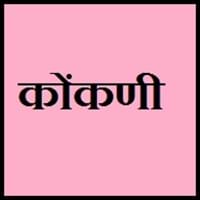Cebuano and Konkani
Countries
Philippines
India
National Language
Philippines
India
Second Language
Philippines
Not spoken in any of the countries
Speaking Continents
Asia
Asia
Minority Language
Not spoken in any of the countries
Not spoken in any of the countries
Regulated By
Visayan Academy of Arts and Letters
Govenment of Goa
Interesting Facts
- About one-fifth of the population of the philippines speak cebuano and are second largest ethnolinguistic group in the country.
- Cebuano contains many words of Spanish origin.
- Fr. Thomas Stevan wrote the first book in Konkani in 1651.
- Sahitya Academy recognized konkani as a language in year 1976.
Similar To
Hiligaynon Language
Marathi
Derived From
Island of Cebu
Sanskrit Language
Alphabets in
Cebuano-Alphabets.jpg#200
Kokani-Alphabets.jpg#200
Writing Direction
Not Available
Left-To-Right, Horizontal
Thank You
Salamat
Dev Borem Korum
How Are You?
Kumusta man ka?
kaso assa?
Good Night
Maayong Gabii
Rati Boren Zavonn
Good Evening
Maayong Gabii
Sanj Borem Zavonn
Good Afternoon
Maayong Hapon
Not Available
Good Morning
Maayong Buntag
Dis Borem Zavonn
I Love You
Gihigugma ko ikaw
hav tujo mog korta.
Excuse Me
Ekskyus mi
upkar korxi
Dialect 1
Boholano
Antruz
Where They Speak
Bohol
Goa
Dialect 2
Southern Kana
Not present
Where They Speak
southern Leyte
Not Available
Dialect 3
North Kana
Not present
Where They Speak
northern part of Leyte
Not Available
How Many People Speak?
Not Available
Second Language Speakers
Not Available
Native Name
Visayan
Kōṅkaṇī
Alternative Names
Binisaya, Bisayan, Sebuano, Sugbuanon, Sugbuhanon, Visayan
Konkan standard, Bankoti, Kunabi, North Konkan, Central Konkan, Concorinum, Cugani, Konkanese
French Name
cebuano
konkani
German Name
Cebuano
Konkani
Pronunciation
Not Available
kõkɳi
Ethnicity
Cebuano people
Konkanis
Origin
16th century
1209 A.D.
Language Family
Austronesian Family
Indo-European Family
Subgroup
Not Available
Not Available
Branch
Not Available
Not Available
Early Forms
No early forms
No early forms
Standard Forms
Standard Cebuano
Kokani
Language Position
Not Available
Signed Forms
Not Available
Indian Signing System (ISS)
Scope
Individual
Individual, Macrolanguage
ISO 639 1
No data Available
No data available
ISO 639 6
Not Available
Not Available
Glottocode
cebu1242
goan1235
Linguasphere
No data Available
No data available
Language Type
Living
Living
Language Linguistic Typology
Verb-Subject-Object
Subject-Object-Verb
Language Morphological Typology
Not Available
Not Available
All Cebuano and Konkani Dialects
Most languages have dialects where each dialect differ from other dialect with respect to grammar and vocabulary. Here you will get to know all Cebuano and Konkani dialects. Various dialects of Cebuano and Konkani language differ in their pronunciations and words. Dialects of Cebuano are spoken in different Cebuano Speaking Countries whereas Konkani Dialects are spoken in different Konkani speaking countries. Also the number of people speaking Cebuano vs Konkani Dialects varies from few thousands to many millions. Some of the Cebuano dialects include: Boholano, Southern Kana. Konkani dialects include: Antruz Also learn about dialects in South American Languages and North American Languages.
Cebuano and Konkani Speaking population
Cebuano and Konkani speaking population is one of the factors based on which Cebuano and Konkani languages can be compared. The total count of Cebuano and Konkani Speaking population in percentage is also given. The percentage of people speaking Cebuano language is 0.32 % whereas the percentage of people speaking Konkani language is 0.11 %. When we compare the speaking population of any two languages we get to know which of two languages is more popular. Find more details about how many people speak Cebuano and Konkani on Cebuano vs Konkani where you will get native speakers, speaking population in percentage and native names.
Cebuano and Konkani Language Codes
Cebuano and Konkani language codes are used in those applications where using language names are tedious. Cebuano and Konkani Language Codes include all the international language codes, glottocodes and linguasphere.





